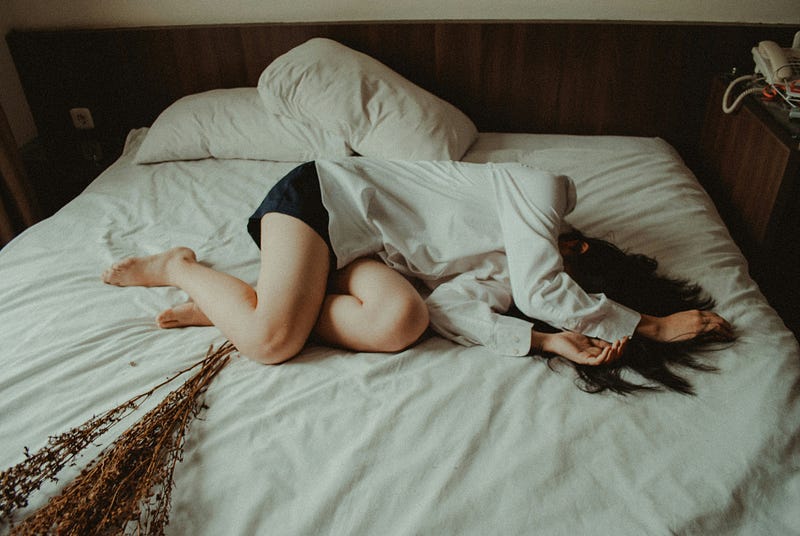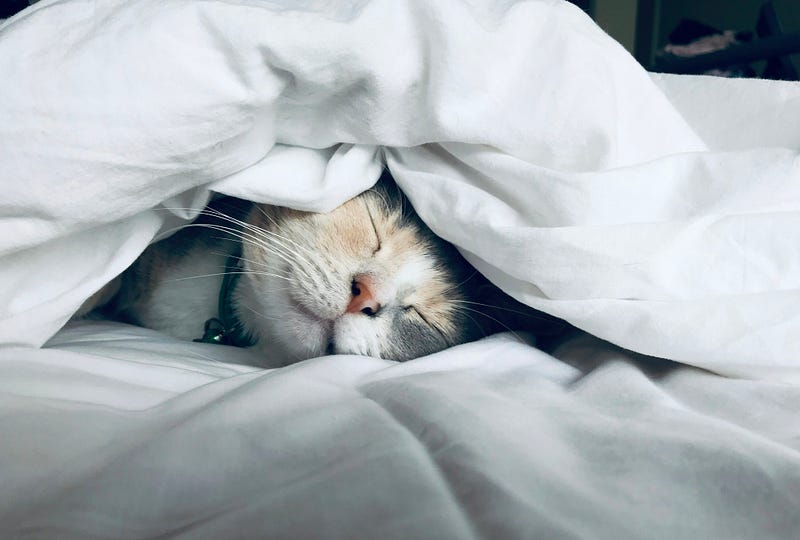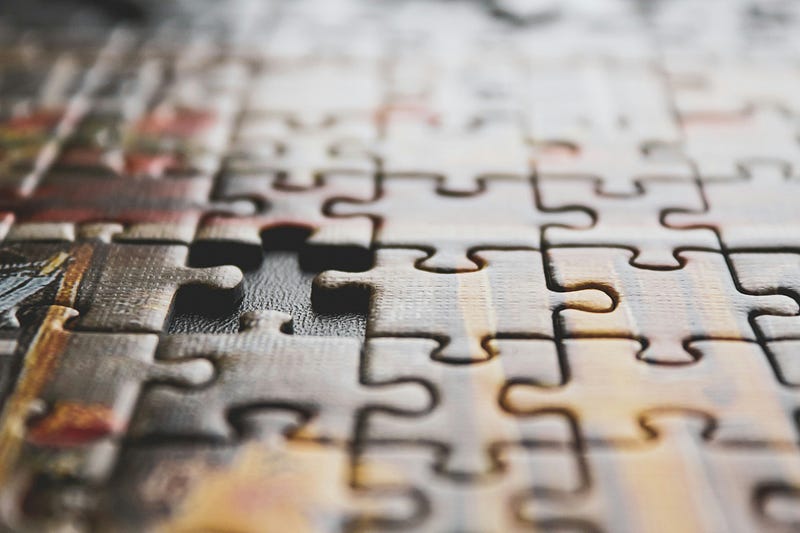Rediscovering Sleep: Understanding Our Forgotten Patterns
Written on
Chapter 1: The Evolution of Sleep
For more than two centuries, our approach to sleep has dramatically shifted—an alteration that may astonish you. Historical changes in sleep habits have led to a significant rise in sleep-related problems, with one in three individuals now experiencing such issues. To understand this transformation, we must explore its origins.
During Ramadan, a month of fasting observed by Muslims, I found myself pondering the effects of this practice on sleep. As many may know, during this period, Muslims abstain from food and drink throughout the day, only to eat at night.

Photo by Yuris Alhumaydy on Unsplash
The Impact of Fasting on Sleep
As beneficial as fasting can be for health, it certainly disrupted my sleep cycle, as it does for many others. It seems almost impossible to maintain good health while fasting all day and still achieve a full eight hours of sleep—unless you rise at an unearthly hour like 2 a.m. This made me question the rationale behind this practice, as it seemed detrimental to our well-being.
My confusion began to dissipate when I came across a video discussing how to remain productive during Ramadan. While the video covered various topics, one segment on sleep caught my attention. The speaker shared that his sleep struggles during Ramadan improved once he delved into the historical lifestyle of the Prophet Muhammad (PBUH). He discovered that people 1,445 years ago had a distinct approach to sleep.
They typically slept for around four hours at night, awakened around midnight, and then enjoyed another four hours of rest in the afternoon. This wasn’t limited to Ramadan; it was a daily routine.

Photo by Kate Stone Matheson on Unsplash
Scientific Insights on Sleep
Research supports the idea that our ancestors engaged in this biphasic sleep pattern. Numerous studies have examined this phenomenon, highlighting the forgotten practice of sleeping in two segments. Here are some insightful articles on this topic:
- The forgotten medieval habit of ‘two sleeps’ — BBC Future
- Did we used to have two sleeps rather than one? Should we again? (theconversation.com)
- Biphasic Sleep: Medieval Folk Slept Two Times a Day; It Might’ve Been a Healthier Habit (culturacolectiva.com)
- For thousands of years, humans slept in two shifts. Should we do it again? — Big Think
I was taken aback by these revelations—not only was I unaware that biphasic sleep was commonplace, but the studies also indicated that human activity peaks in the morning and evening, leaving the afternoon as a period of lethargy. All the pieces started to fall into place.

Photo by Sigmund on Unsplash
The Shift Away from Traditional Sleep
You may wonder why society abandoned this way of sleeping. The answer is simple: the invention of the light bulb diminished our ability to return to sleep after waking, while the Industrial Revolution enforced a continuous work schedule, restricting opportunities for multiple sleep sessions. Gradually, the time between the first and second sleep diminished until it was consolidated into a single stretch.

Photo by Museums Victoria on Unsplash
The Persistence of Biphasic Sleep
Interestingly, many cultures have yet to undergo industrialization and still practice sleeping twice a day. This is particularly common among certain tribes. My parents shared that in their youth, back in their home country, they too followed this biphasic sleep routine.
I hope you found this exploration enlightening. If you enjoyed this piece, you might also appreciate these related articles:
The Brand New Addiction Quitting Miracle (if only you knew this)
The simplicity of quitting shocked me when I read this.
Working less made me work a lot more. Confused? Let me explain…
One huge problem I always had with working was that I would work too much and burn myself out.
7 New Habits You Can Adopt Today of Highly Successful People
Implement these and you will become successful (100% no doubt about it!) you just need to be patient; results will follow.
Chapter 2: Insights on Sleep and Productivity
In this compelling video, Bryan Johnson discusses his transformative journey of reversing his aging process and how sleep plays a pivotal role in health.
Matthew Walker joins Joe Rogan to delve into the science of sleep, exploring its critical importance for health and productivity.